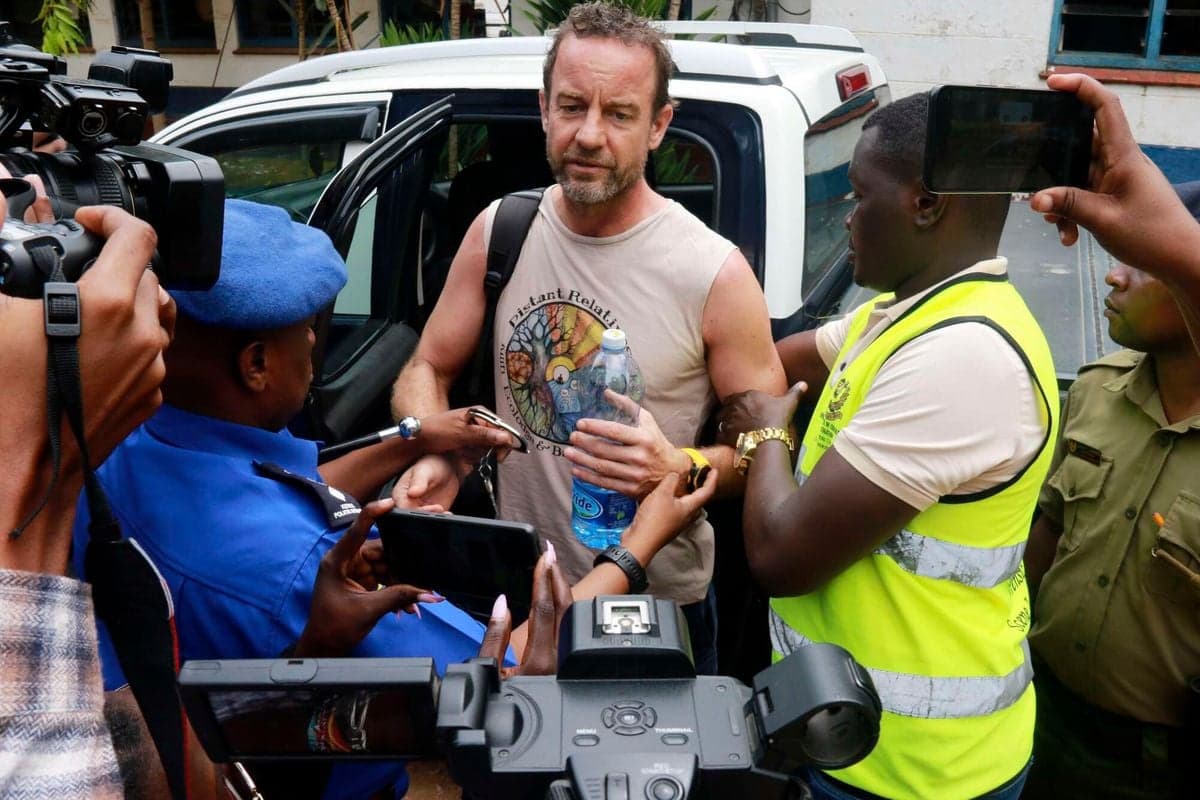We're loading the full news article for you. This includes the article content, images, author information, and related articles.
A Kwale court has ordered the release of a Dutch national, who faced multiple charges including assault, after a psychiatric evaluation found him unfit to stand trial, raising questions about justice and the handling of foreign offenders in Kenya.

KWALE, KENYA – A Dutch national at the center of a viral assault case in Diani, Kwale County, has been released from custody after a court deemed him mentally unfit to face prosecution. Elwin Ter Horst, 47, was freed on Wednesday, November 12, 2025, by Kwale Senior Resident Magistrate Joy Mutimba, who ordered he be placed in the care of the Embassy of the Kingdom of the Netherlands for further action. The decision followed a mental examination which concluded that Mr. Horst suffers from bipolar mood disorder with comorbid polysubstance use.
The ruling brings a sudden turn to a case that sparked public outrage across Kenya in late October 2025. Mr. Horst was arrested on Tuesday, October 28, 2025, at the Boma Banda Cottage in Diani following reports that he had assaulted his Kenyan girlfriend, Angela Atieno, and caused a disturbance. Upon his transfer to the Diani Police Station, his conduct escalated. A video that circulated widely on social media showed him verbally abusing, spitting at, and wiping mucus on a police officer.
The incident led to widespread condemnation from the public and the National Police Service (NPS), which praised the officers for their professional restraint in the face of extreme provocation. Initially, authorities indicated he would face a litany of charges, including assault causing bodily harm, malicious damage to property, creating a disturbance, possession of suspected narcotics, and being in the country illegally as his passport had expired. A search of his cottage had uncovered a whitish substance suspected to be narcotic drugs.
Following his arrest, the Office of the Director of Public Prosecutions (ODPP) successfully applied to have Mr. Horst detained for 14 days to allow for a thorough investigation. The Senior Assistant Director of Public Prosecutions, Rosemary Nandi, had argued that the detention was necessary to probe the multiple offenses. During his initial court appearances, Mr. Horst expressed remorse for his actions, attributing his behavior to a lack of medication for a pre-existing mental condition. “I say sorry; it was wrong. It is not that I wanted to do that. I want to live peacefully and happily in Kenya,” he told the court, pleading not to be deported.
The court then ordered a mental health evaluation to determine his fitness to stand trial. The subsequent report, dated November 4, 2025, formed the basis of the magistrate's decision to release him. “The accused person is not fit to plead... He will thus not be charged at the moment,” Magistrate Mutimba stated in her ruling on Wednesday. The case highlights the complexities of applying the insanity defense in the Kenyan legal system, where an accused person's mental state at the time of the offense is a critical factor in determining criminal responsibility.
The release of Mr. Horst has elicited mixed reactions, with some citizens and human rights groups, who had initially opposed deportation in favor of local prosecution, now questioning the outcome. The case underscores the challenges within Kenya's justice system in balancing mental health considerations with accountability for criminal acts, particularly when foreign nationals are involved. It also brings to the forefront the broader issues of the conduct of tourists and expatriates in Kenya and the consistent application of the law.
Msambweni Police Commander Robinson Langat had earlier condemned the incident, warning that foreign nationals who violate Kenyan laws would face strict legal action. The decision to release Mr. Horst to his embassy, while based on a medical and legal determination, shifts the responsibility for his subsequent care and any further legal or administrative actions to the Dutch authorities. The Embassy of the Kingdom of the Netherlands in Nairobi is now expected to manage his case. As of Friday, November 14, 2025, it remains unclear what specific measures the embassy will take. This outcome leaves lingering questions for the Kenyan public and the victims about accountability and the resolution of a case that captured national attention.
Keep the conversation in one place—threads here stay linked to the story and in the forums.
Sign in to start a discussion
Start a conversation about this story and keep it linked here.
Other hot threads
E-sports and Gaming Community in Kenya
Active 9 months ago
The Role of Technology in Modern Agriculture (AgriTech)
Active 9 months ago
Popular Recreational Activities Across Counties
Active 9 months ago
Investing in Youth Sports Development Programs
Active 9 months ago